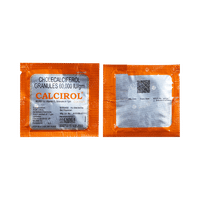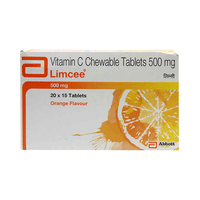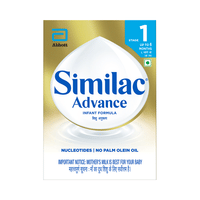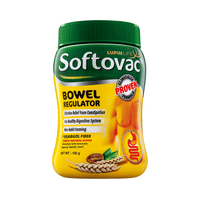Favcal Ultra Tablet

Rs.162for 1 strip(s) (10 tablets each)
Composition FOR Favcal Ultra
Calcium Carbonate(265mg),Magnesium Hydroxide(216mg),Zinc Sulphate Monohydrate(61.8mg),Vitamin D3(1000IU)food interaction for Favcal Ultra
alcohol interaction for Favcal Ultra
pregnancy interaction for Favcal Ultra
lactation interaction for Favcal Ultra
food
alcohol
pregnancy
lactation
Favcal Ultra Tablet may be taken with or without food, but it is better to take it at a fixed time.
None
None
CAUTION
It is not known whether it is safe to consume alcohol with Favcal Ultra Tablet. Please consult your doctor.
CONSULT YOUR DOCTOR
Information regarding the use of Favcal Ultra Tablet during pregnancy is not available. Please consult your doctor.
CONSULT YOUR DOCTOR
Information regarding the use of Favcal Ultra Tablet during breastfeeding is not available. Please consult your doctor.
CONSULT YOUR DOCTOR
SALT INFORMATION FOR Favcal Ultra
Calcium Carbonate(265mg)
Uses
Calcium Carbonate is used in the treatment of nutritional deficiencies.
How it works
Calcium Carbonate provides essential nutrients.
Common side effects
Constipation, Increased calcium level in blood, Decreased phosphate level in blood, Milk-alkali syndrome, Abdominal bloating, Xerostomia, Acid reflux, Decreased appetite, Irritability, Vomiting, Nausea, Headache
Magnesium Hydroxide(216mg)
Uses
Magnesium Hydroxide is used in the treatment of acidity, intestinal ulcers and stomach ulcers.
How it works
Magnesium Hydroxide is an antacid that neutralises excess acid in stomach.
Common side effects
Diarrhea, Vomiting, Abdominal pain, Colic, Nausea, Increased magnesium level in blood
Zinc Sulphate Monohydrate(61.8mg)
Uses
Zinc Sulphate Monohydrate is used in the treatment of nutritional deficiencies.
How it works
Zinc Sulphate Monohydrate provides essential nutrients.
Common side effects
Abdominal pain, Indigestion, Nausea, Vomiting, Diarrhea, Gastric irritation, Stomach inflammation
Vitamin D3(1000IU)
Uses
Vitamin D3 is used in the treatment of Vitamin D deficiency and osteoporosis.
How it works
Vitamin D3 is a form of vitamin D. It raises vitamin D levels in your blood. This in turn raises calcium levels in your blood by helping you absorb more calcium from food.
Common side effects
Increased calcium in urine, Loss of appetite, Increased calcium level in blood, Itching, Rash, Urticaria, Facial swelling, Genital edema, Dry skin, Nail disorder, Erythematous rash, Decreased prothrombin level in blood, Difficulty in swallowing, Weakness, Fatigue, Sleepiness, Headache, Dryness in mouth, Metallic taste, Nausea, Vomiting
SUBSTITUTES FOR Favcal Ultra
No substitutes foundExpert advice FOR Favcal Ultra
- Calcium Carbonate helps treat calcium deficiency.
- Do not take it within 1-2 hours of taking other medicines. Calcium may decrease the absorption of the other medicines.
- Do not take it within 2 hours of eating foods rich in oxalic acid (e.g. spinach), phosphate (e.g. bran), or phytic acid (e.g. whole cereals).
- Inform your doctor if you have problems with your kidneys.
Frequently asked questions FOR Favcal Ultra
Calcium Carbonate
Q. What is supracal/shelcal 500/cipcal 500?
Shelcal, supracal, cipcal contain calcium carbonate along with vitamin D3
Q. What is it used for?
These preparations are used as a calcium supplements
Q. Is calcium carbonate/shelcal 500 chewable?
Yes, however it depends on dosage form available. If it is an oral tablet it has to be swallowed
Magnesium Hydroxide
Zinc Sulphate Monohydrate
Vitamin D3
Q. Is it better to take Vitamin D3 at night or in the morning?
You can take Vitamin D3 at any time of the day, morning, or night. However, there is limited information available about the best time to take Vitamin D3. Take it exactly as advised by your doctor.
Q. What are the benefits of taking Vitamin D3?
Vitamin D3 is important for maintaining bone health, support the health of the immune system, brain, and nervous system. It also regulates insulin levels and is also important for a healthy heart and blood vessels.
Q. How should Vitamin D3 be taken?
Vitamin D3 should be swallowed whole with water and should not be crushed or chewed. It is advised to take it with the main meal of the day to increase its absorption.






















